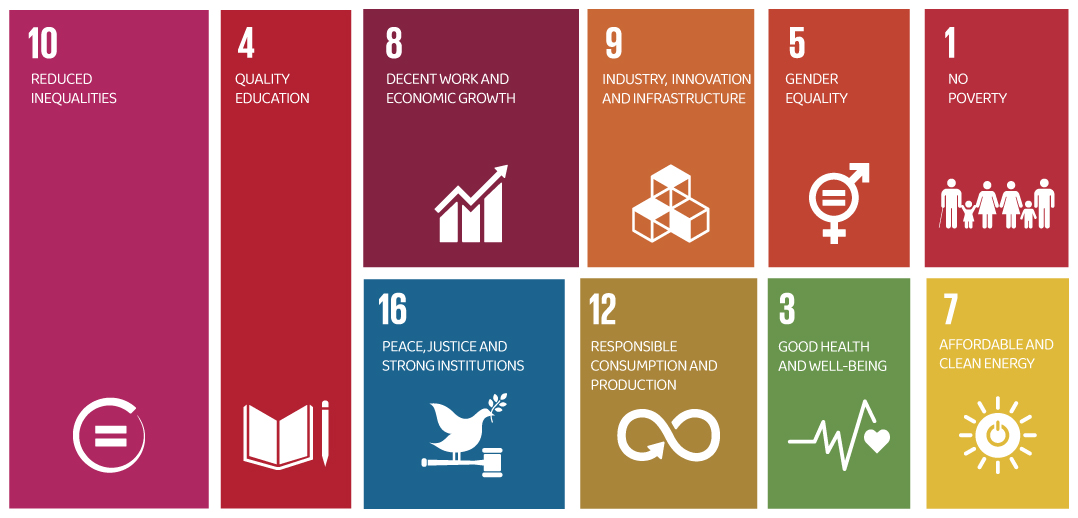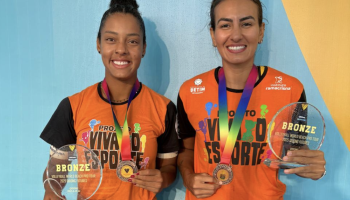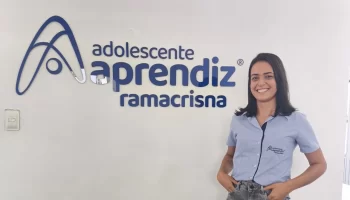Recently, an acronym has taken over the business environment around the world: ESG. The term stands for Environmental, Social and Governance. It is a strategic vision that guides the operations of the private sector in a socially responsible, sustainable manner and with good governance.
In other words, the concept describes how much an organization uses means to minimize its impacts on the environment, cares about people and adopts good administrative practices.
ESG has become as valuable a currency as financial figures when it comes to the investment market. To give you an idea, in 2020 alone, US$ 38 trillion was invested in actions related to the theme worldwide and R$ 2.5 billion in Brazil. And the expectation is that, by 2025, this number will reach US$ 53 billion, corresponding to a third of investment assets.
But the agenda is not exclusive to the private sector. Increasingly, governments and Third Sector institutions have adopted ESG practices, as a result, they become more efficient, effective and leave a good mark for future generations.
When we talk about the ESG agenda, we are referring to actions such as, for example:
- environmental – practices aimed at reducing global warming, carbon emissions, air and water pollution and deforestation, waste management policies and the use of clean energy;
- social – activities related to social responsibility, respect for human rights and labor laws, team diversity, private social investment, community involvement and donation campaigns;
- governance – directly linked to management policies and corporate conduct, such as anti-corruption practices, audits, good relationship with the team, training and channels for complaints and dialogue.
How did the term ESG come about?
Although the term has become popular in recent years, ESG emerged nearly 20 years ago. The acronym appeared in 2004, in the publication of the report Who Cares Wins.
The document brought together the World Bank, the UN Global Compact and representatives of financial institutions from nine countries. In the text, they addressed how the incorporation of environmental, social and governance factors in capital markets is important for business, leading to more sustainable markets and better results for societies.
At the same time, the United Nations Environment Programs Finance Initiative produced another document, called the Freshfield Report, which pointed out how important environmental, social and governance issues are for financial assessment.
Thus, the two reports formed the basis for the launch of the Principles for Responsible Investment on the New York Stock Exchange and for the creation of the Sustainable Stock Exchange Initiative, which promotes corporate investment in the development sustainable.
Even so, ESG practices had not gained much space in the market. But in 2015, the UN 2030 Agenda drew attention to the importance of sustainable development, taking into account social and environmental aspects. Then the Paris Agreement was signed, with the aim of reducing global warming
Finally, in 2020, Larry Flink, executive director of BlackRock (the world’s largest fund manager) announced, in his traditional annual letter, that sustainability would become a criterion for the company’s investment decisions. Furthermore, he stated that companies that do not commit to the topic would be doomed to run out of capital. It was what was needed for ESG practices to become popular.
ESG in Brazil
Although Brazil was one of the countries participating in the Who Cares Wins report, the ESG is not yet parameterized in the country. In other words, the assessment of environmental, social and governance aspects is subjective. According to researchers from the Federal University of São Carlos, 24% of the world scholarships make the regulation of ESG reporting mandatory and Brazil is among the 76% that do not foresee the initiative. But, in December 2021, the Securities and Exchange Commission (CVM) published an amendment to the rules, expanding the requirement for information on ESG aspects.
This should accelerate the understanding and applicability of ESG criteria by Brazilian companies, increasing competitiveness in the domestic and foreign markets. Even so, ESG already generates significant figures here in Brazil: in 2020 alone, R$ 2.5 billion was raised, according to a survey released by the Global Compact.
Actions in the Third Sector
When Civil Society Organizations (CSOs) implement ESG actions, they open horizons for new partnerships with the private sector in the best “win-win” style: the company wins, the NGO wins and society wins.
But not only that, ESG practices can also be used by Organizations, such as governance and impact measurement. The result is an increase in transparency and employee work.
There is also an opportunity to work, using expertise in the area to provide services to companies and help structure their private social investments. In this way, they create a product that will help in the Organization’s self-sustainability.
Ramacrisna Institute and ESG investment
Faced with so many benefits, Ramacrisna is betting on ESG investments as a novelty for 2022. The work began with an exclusive mentorship from BrazilFoundation. The Institute’s vice president, Solange Bottaro, highlights that the training will be a differential among other CSOs.
“ESG has also broadened the perspectives of Social Organizations in the sense that the responsibility for preserving our planet belongs to all of us. For companies, membership expands their financial portfolio, for the Third Sector it is the possibility of showing their skills and abilities in the Environmental, Social and Governance sectors. There are three expertises already developed by several CSOs for a long time and that allow a more relevant presence in this relationship with companies. A relationship that can yield great partnerships with surprising results”, she points out.
In this way, Ramacrisna stands out as a possibility of partnerships for companies that want to adopt ESG practices. Next, find out about our actions:
Environmental
- Environmental awareness and education – we work in the continuous environmental education of children, youth and adults participating in our projects. In addition, we encourage students to share these values with their families, friends, and neighbors.
- Oil recycling – all the motor oil used in the Ramacrisna Wire Factory and at the Automobile Mechanics School is destined for a partner company, which carries out the treatment and improvement of the material.
- Composting – since 2014, we have been reusing organic waste, organic leaves and grass clippings. The material is aged for four months, when the compost is removed and fermented for another month. The process is separated by wooden playpens and plaques with dates. When the compost is transformed into organic fertilizer, it is used in the gardens of Ramacrisna.
- Solar water heating – we use vacuum tubes to heat the water used for cleaning all the material used in the kitchen and food more economically. In addition, we also use solar heating in the buffet and showers.
- Energy efficiency – the electrical energy used at the Institute’s headquarters is generated by a photovoltaic plant, a clean and renewable source. In addition, in partnership with Cemig (electricity company in the state of Minas Gerais), we exchange motors, lamps and wires for more efficient performance.
Social
All projects developed at Ramacrisna have a social bias. But our flagship is the professional training courses, offered since 1995. The objective is to qualify young people and adults to facilitate their insertion in the job market.
In each year, we invest, on average, BRL 249 thousand. The estimate is that for every BRL 1 of investment, there is a social return of BRL 5.59.
According to our impact report, the courses are aligned with five Sustainable Development Goals: Decent Work and Economic Growth; Quality Education, Poverty Eradication; Peace, Justice and Strong and Effective Institutions; and Reduction of Inequalities.
We currently offer courses in Welding, Auto Mechanics, Electrician and Installation of Photovoltaic Power Plants, Computer Operator, Industrial Robotics and Audiovisual. In 2021 alone, there were 26 classes of 12 courses that benefited 701 students.
In addition to the courses we organize, we also offer courses according to what best meets the social responsibility commitment of our partners. The qualification is formatted on demand from the sponsoring companies, with the search for students and potential employees in the neighborhoods surrounding the projects.
Governance
Since our inception in 1959, we have invested in management and governance as a tool for social transformation – long before the term ESG existed.
With Wire Factory, since 1975, we have worked for the Institute’s self-sustainability, since all sales proceeds are destined to maintain the Institute’s social activities.
Every year, the Factory contributes BRL 815 thousand, on average, corresponding to more than 22 thousand services or 28% of the Institute’s accounts.
Another governance action is our partnership with Dom Cabral Fundation. Since 2008, we have had training courses for the development of management skills at the Institute. Since then, we have obtained significantly better results in obtaining resources, credibility with partners, improvement in the quality of service and number of people benefited.
To give you an idea, in 2021, we had a total of 106 employees at the headquarters, with 1148 hours of training. In addition, we won 11 partnerships with the City of Betim and 17 with companies. These numbers made it possible for us to welcome families during the coronavirus pandemic by donating basic food baskets, gas, sneakers, etc. providing food security for all.
Partnerships
- Expanding Borders – in partnership with BrazilFoundation, we offered 15 courses in Igarapé. Between 2020 and 2021, there were 25 classes and 530 qualified students. The project also included the installation of a photovoltaic plant at Educational and Cultural Association of Igarapé which, in addition to guaranteeing a reduction in electricity costs, also served as an incentive for the installation and maintenance course of structures of the type.
- Building the Future – in partnership with Petrobras, we serve young people from three cities in the Metropolitan Region: Betim, Sarzedo and Ibirité. Since 2020, there have been 8 courses, which qualified 1126 students from 89 classes.
Still speaking of governance, we work in the development of customized projects for your company. This is GIP – Management and Innovation in Ramacrisna Projects, which offers clients solutions in management, administration and execution of various types of social projects, in addition to consulting in management areas.
GIP – Management and Innovation in Ramacrisna Projects
The GIP emerged to combine the need to obtain resources for social projects with the opportunity to help other institutions and companies. We offer full support in the management of your social project, contributing to the execution of the proposed general objective and monitoring the results, in addition to consulting in specific areas of management.
For this, we use the expertise of more than 60 years of experience of the Institute in management, relationship with partners and accountability for companies, public authorities and international institutions.
If you are interested in implementing ESG-based best practices in your company, count on us. At GIP, we carry out a consultancy in management and social innovation in projects of companies, social organizations, public authorities and social entrepreneurs based on the following services:
- financial, accounting and legal advice;
- accountability;
- communication and relationship with the press;
- technology and innovation;
- learning;
- cultural products;
- professional qualification.
In each of the projects, we use our own methodology that takes into account the specificities of our clients. In general, this process includes six steps: diagnosis, planning, execution, monitoring, follow-up and evaluation.
GIP develops several ESG projects in partnerships with companies, public authorities and international organizations from different segments, such as social assistance, culture, education and sports, for example. Discover one of our cases:
Alvaro Cesar Foundation
The institution was created at the request of the Public Prosecutor’s Office for Foundations of Minas Gerais, in 2019. For its foundation, Ramacrisna was hired by “notorious knowledge” to start from scratch the foundation that serves and welcomes children with intellectual disabilities.
For this, the GIP invited ethical, reputable and committed citizens to the cause of children and young people with intellectual disabilities to compose the Curator, Director and Supervisory Boards. Next, Ramacrisna prepared and registered the incorporation documentation, the institutional project, the strategic and budgetary planning, prospected and trained the management team.
In addition, the Institute was responsible for creating and approving the Statute, hiring a professional manager and an accounting firm. It also provided the visual identity of the new institution and accompanied the Foundation’s first six months of operation.
Learn more about the Ramacrisna Institute
The Ramacrisna Institute is a non-profit civil society organization with no religious or partisan ties, founded in 1959 by journalist Arlindo Corrêa da Silva, who died in 1993. Our institution is made up of deliberative and fiscal councils and directed by an executive board.
For over 60 years, we have been developing learning, vocational, cultural, work and income generation, technology, sports and leisure projects, among others, for socially vulnerable communities in 13 cities in the Metropolitan Region of Belo Horizonte.
The Ramacrisna Institute has an affinity with 10 of the 17 UN Sustainable Development Goals (SDGs), actively working towards their implementation. Are they:

Throughout our history, we have already changed the lives of almost 2 million people and we intend to continue to give new possibilities to children, young people and adults. Discover our work and learn how to help.


